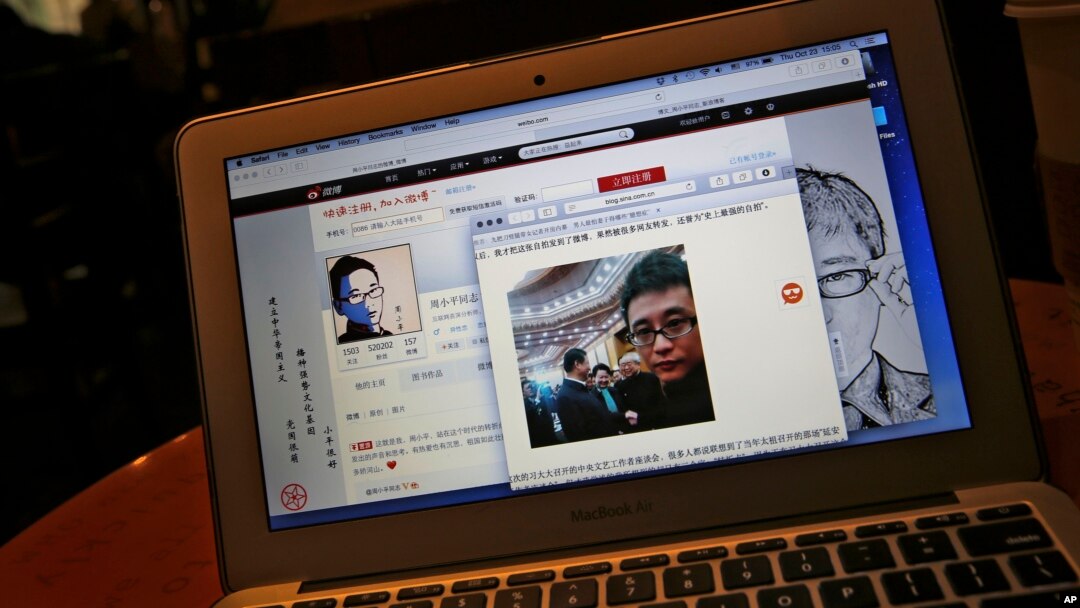China has started to implement a new set of revised criminal laws that include punishments for Internet users for what the government calls “starting rumors on the web.”
According to the new law, which became effective November 1, when netizens pass on “false information” via Weibo and other social media outlets, or post messages that “fabricate false danger, disease, disaster, or police information” on forum boards, they can be prosecuted and sentenced to up to 7 years in prison.
Chinese human rights activist Ou Biaofeng told VOA he is concerned the Chinese government will use the laws to silence critics.
"The purpose of the new law is to suppress dissidents and human rights activists. Chinese authorities allow no criticism," he said. "But human rights activists and civil society want to make their voices heard. With the new law, authorities will be able to further crackdown on freedom of expression, and cause fear among netizens. "
Wu Bin, another human rights activist, asked who will decide whether information is false and what criteria will be used? Wu also questioned how it will be decided if the accused “deliberately spreads false information or not.”

FILE - A picture illustration shows icons of WeChat and Weibo apps in Beijing, Dec. 5, 2013.
Deliberate misinformation or mistake
"The government sets their own standards, they are very flexible. If they want to arrest you, they will say you deliberately spread rumors. To us dissidents and government critics, they will do everything possible to make it look like we have committed a crime," Wu Bin said.
Some Chinese Internet users are worried that the government will abuse the law. One Internet user warns fellow netizens to “close their mouths and only make eye contact." Another user said, “False news is not scary. What’s really scary is that the government accuses you of spreading rumor when you are obviously telling the truth."
Some believe that the Chinese government and official media often conceal, or lie about the number of casualties in accidents, natural disasters, or police operations .They question is whether the law will apply to them as well.
Dissident Wu Bin said: "The government openly tells lies and is never punished or held accountable. All should be equal before the law. The government should be punished also."
The Chinese government has enhanced its control of the Internet and made examples of some netizens for “spreading rumors.”
For example, this year Beijing police accused an Internet user of spreading rumors and sentenced him to a five-day administrative detention after he said he saw investors committing suicide during the stock market crash in July.
After the huge Tianjin warehouse explosion in August, authorities were initially tight-lipped on the number of casualties, but when two local Internet users forwarded messages saying there were 1,300 deaths, the two were arrested and accused of spreading false information and disturbing public order. They too were put under administrative detention.
With the new law, sentencing for “spreading rumors” is 3 to 7 years in prison, depending on if the government thinks “there are serious consequences.”
Last week, a report by Freedom House, entitled “Freedom on the Net 2015,” had China ranked as the worst abuser of Internet freedom in the world.


